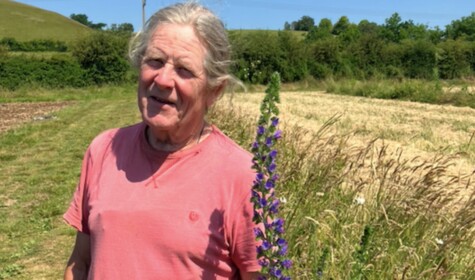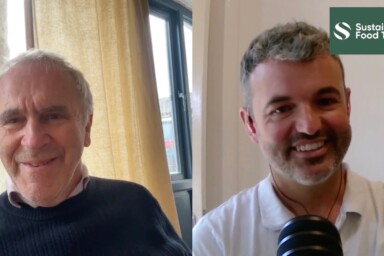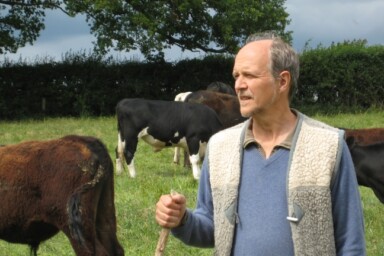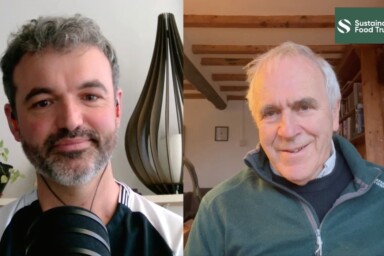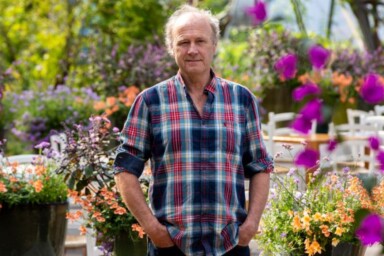Bringing the fourth series of the SFT podcast to a close, Patrick Holden caught up with longtime friend and one of the pioneers of the UK’s organic farming movement, Iain ‘Tolly’ Tolhurst.
Tolhurst Organic, located on the Hardwick Estate between the Chilterns and the river Thames, is a model of sustainability, and one of the longest running organic vegetable farms in England.
For over 40 years, Tolly has been producing a wide range of seasonal, organic fruits and vegetables, which are sold to the local community through a box scheme. His farm was the first to attain the “Stockfree Organic” symbol in 2004, and there have been no grazing animals and no animal inputs to any part of the farm for over 30 years. To build soil fertility, Tolly uses green manures as part of a crop rotation, as well as using vegetable and woodchip compost from waste materials.
With his extensive knowledge and experience of organic food production, Tolly also delivers educational talks across the UK and beyond, and runs a consultancy service giving advice on organic conversion and production, helping to train and educate farmers and growers for the future.
During this episode, Patrick and Tolly recount how they first met in 1981 when the UK Organic Farming movement was still in its infancy, and Tolly shares the origin of his passion for horticulture, including his earliest influences. They also discuss the impacts of World War II on agriculture in the UK and what lessons we can learn from this, before digging into Tolly’s farming practices including the use of wood chip, as well as a discussion around the the role of livestock.
To find out more about Tolly and Tolhurst Organic, follow @tolhurstorganicveg on Instagram, or visit https://www.tolhurstorganic.co.uk.
This conversation has been split into two episodes – tune in for part two on Wednesday 10th April.
To listen to more SFT podcasts, featuring some of the biggest names in regenerative food and farming, head to our main podcast page. And to keep up with our news, you can subscribe to our fortnightly newsletter or follow us on Instagram, X or Facebook.
“Biodiversity is not a bolt-on extra, it’s integral to the whole [farm] system. The system is driven by biodiversity and that starts in the ground.”
